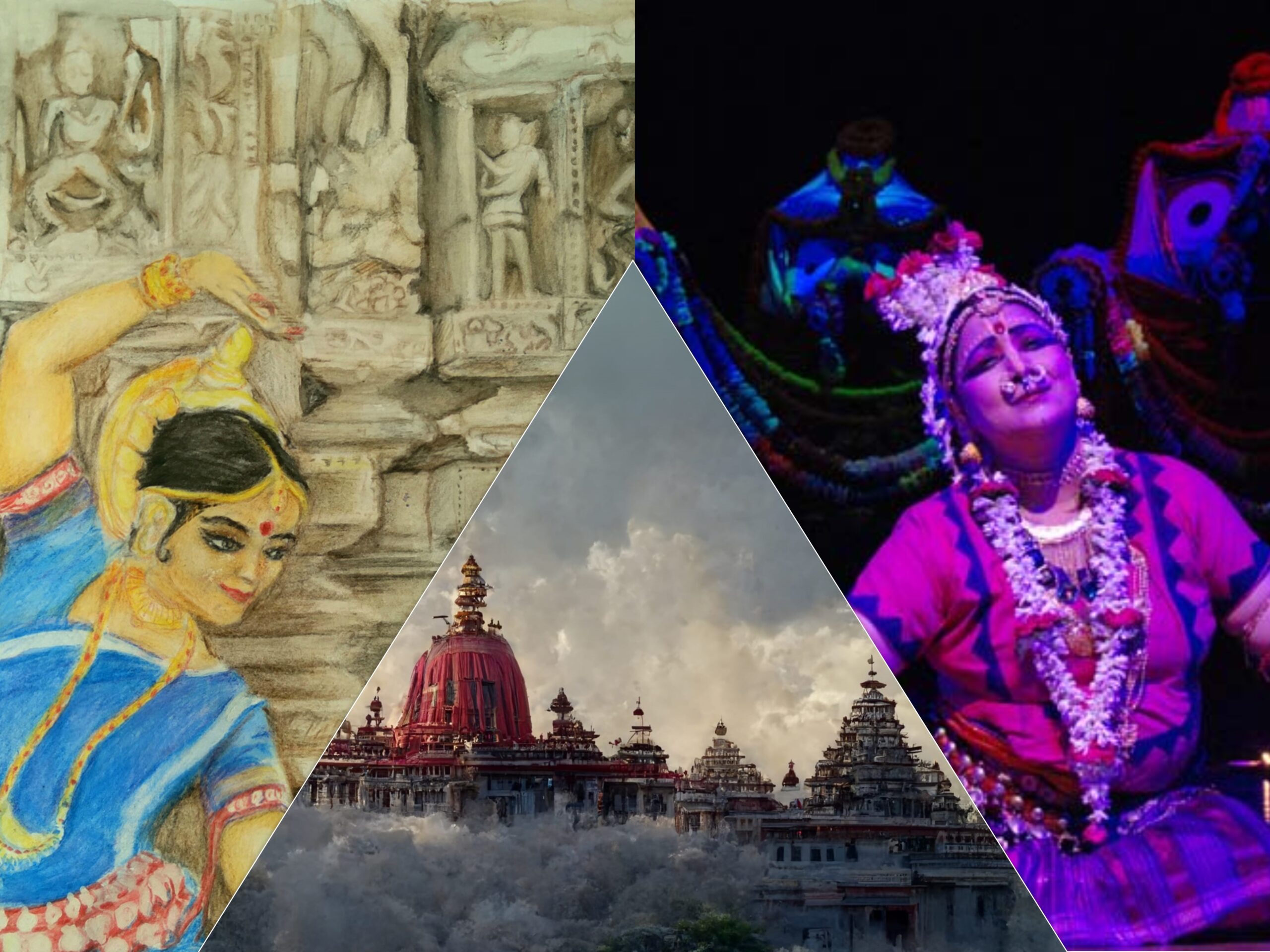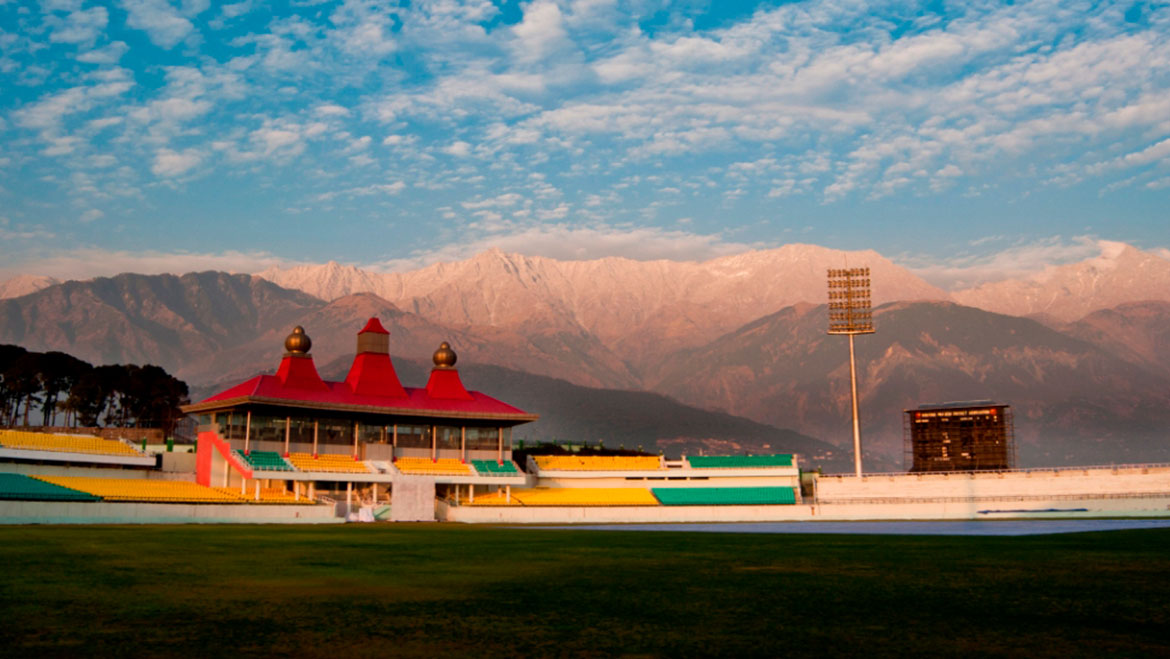- Visitor:22
- Published on:
Fundamentals of Monotheism – Dharma vs. Religion – Part 3
In this brief excerpt, one of India’s greatest modern historians, Sita Ram Goel discusses the fundamentals of monotheism and how it differs from the fundamentals of polytheism. This excerpt discusses the fundamentals which differentiate Dharma from Religion.

Monotheism has three sects – Judaism, Christianity and Islam. These three sects are scions of the same mother. They are born out of same psyche, and the main mythical and doctrinal propositions of all the three are similar. Therefore, first of all, we will describe the propositions shared in common by these three faiths.
The first proposition of Monotheism is that the creator and controller of the Cosmos is the One God who is unique, who does not manifest himself in different forms, and who does not permit the worship of any god or goddess other than himself. There is no element outside or inside the Cosmos which is of the same substance as the One God, or is his part, or is pervaded by him. Therefore, to worship any other gods or goddesses or to regard any part of the Cosmos as divine, is a serious crime against the One God.
The second proposition of Monotheism is that the One God has created the Cosmos without the aid of any substance, that is, out of sheer Void or Nothing. This miracle is indicative of the omnipotence of the One God. If the One God had taken the least aid from any substance, his omnipotence would have suffered disparagement. For this very reason, he himself also remained outside of his own creation.
The third proposition of Monotheism is that the human male is the highest creation of the One God. At the time of creating the human male, the One God made a clay figure of the human form and blew his own breath into it. This breath became the soul of the human male. Monotheism is not quite sure whether the human female has a soul or not. The One God had taken one rib out of the human male and carved it into a figure of the human female without blowing his breath into that figure. Nor can human soul be regarded as a divine entity. After acquiring the soul, the human being became conscious and capable of thinking and also attained the capacity to distinguish between vice and virtue. But this soul cannot be considered a part of the One God. Monotheism is also quite clear that all other animate and inanimate parts of creation have been created merely for enjoyment by humans, and humans should not harbour any other feeling towards them.
According to the fourth proposition of Monotheism, man has only one life and the supreme elevation of that life is an exclusive worship of the One God. An indispensable part of that worship is that man regulates all his conduct and thought in accordance with the commandments of the One God. But man cannot acquaint himself with those commandments by establishing direct contact with the One God. The One God remains outside the Cosmos while man remains inside it. Therefore, direct contact between the two is inconceivable. Thus finding man groping in the dark, the One God takes pity on him and, in order to convey his commandments to man, he sends his prophets from time to time. Every commandment of the One God revealed by each prophet is unprecedented; it had never been heard before. In this process of history, the One God at last sends his perfect prophet through whose mouth a comprehensive and complete code of commandments of the One God is received by man. This prophet is called the Last Prophet who pronounces the final commandments of the One God, to which nothing can be added and from which nothing can be subtracted. In the revelations by the Last Prophet, the whole truth is incorporated.
According to the fifth proposition of Monotheism, two events take place after the advent of the Last Prophet. Firstly, the history of mankind gets divided into two periods. The period before the coming of the Last Prophet, becomes the period of darkness or ignorance, and the period thereafter the period of light or knowledge. No mode of worship or cultural heritage or social custom of the earlier period, remains valid and a complete destruction of whatever prevailed earlier, is considered conducive to salvation of mankind. Secondly, after the coming of the Last Prophet, mankind is divided into two groups. One group is that which professes complete faith in the Last Prophet and begins to follow the path shown by him. The other group is that which professes doubts regarding the Last Prophet or repudiates him. The first group becomes dear to the One God, and the second invites his wrath. The One God commands the first group to wage ceaseless jihad against the second group, and either make that group submit to the Last Prophet or annihilate it altogether.
The sixth proposition of Monotheism is that the One God has bestowed sovereignty of the whole world on his Last Prophet, and the Last Prophet on the group professing complete faith in him. At the same time, the One God has confiscated the lives and properties of the group which rebels against his Last Prophet. Therefore, the believing group has the sacred duty to obey his commandments and seize the lives and properties of the rebel group. Those of the rebel group who take to arms in their defense, should be massacred. Their families should be captured and sold into slavery. Their movable and immovable properties should be plundered. Their religious places should be destroyed. Their religious books should be burnt. Their saints and sages and priests should be dishonored if not killed outright. And their whole cultural wealth should be obliterated. Those of the rebel group who accept defeat, should be converted to the faith of the conqueror. If for any reason their conversion is not possible, they should be made second class citizens and oppressed till they seek refuge in the Last Prophet. In order to carry out the commandments of the One God in the context of the rebel group, it is not required that the moral character of the believing group be higher or their consciousness purer. Professing exclusive faith in the Last Prophet is enough for them. (See Appendix 3 for the scriptural sanctions which Monotheism provides for this behavior pattern).
According to the seventh proposition of Monotheism, on the Last Day, all those born and dead from the beginning to end of creation, will rise from their graves and present them-selves before the One God for his Last Judgment. On that day, the Last Prophet will reappear, sit on the right side of the One God, and give account of the good and bad deeds of each human being. Those who had professed faith in the Last Prophet will be sent to an everlasting heaven where all the objects of enjoyment of the terrestrial world will continue to be available for ever in their highest quality and limitless quantity. On the other hand, those who had rebelled against the Last Prophet will be thrown into an everlasting hell with full arrangements for subjecting them to indescribable torments. In the context of heaven and hell, it is to be noted that at the time of delivering his judgment, the One God will pay attention not to the conduct of the applicants but to their faith. Intense faith in the Last Prophet, will enable the One God to forgive many faults of conduct. The Last Prophet will also not falter in recommending favors for those devoted to him exclusively.
All these seven proposition are shared in common by Judaism, Christianity and Islam. The conflict among these three creeds is regarding the Last Prophet, leaving aside a few other secondary matters. The Jews believe in Moses as their Last Prophet, the Christians in Jesus Christ, and Muslims in Muhammad. Much maligning and also killing has taken place among these three creeds due to this conflict. The greatest sufferers have been the Jews whom Christians and Muslims call killers of prophets and corrupters of scriptures. Many holy wars have also been fought between Christianity and Islam. But in spite of these mutual differences, the followers of all these three faiths have displayed the same hostility against the followers of Advaita. Slaughters made by the Jews could not spread outside Palestine for various reasons. But the Christians and the Muslims have painted many countries with extensive bloodshed and destroyed the spiritual and cultural wealth of those countries as far as they could.
- 11 min read
- 0
- 0










